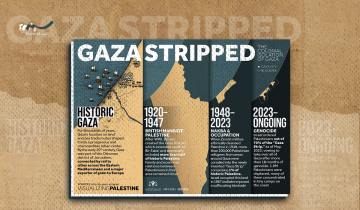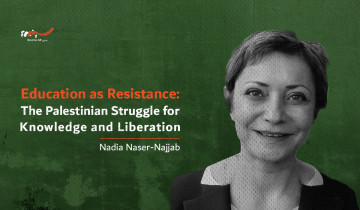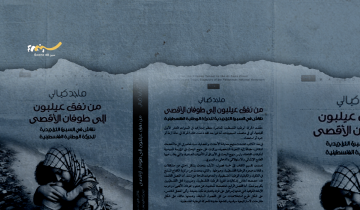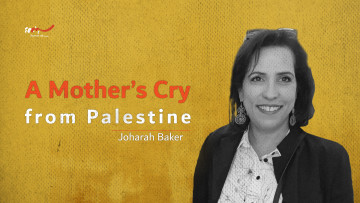Palestine in “Intensive Care” and Its People in Intractable “Mental State”
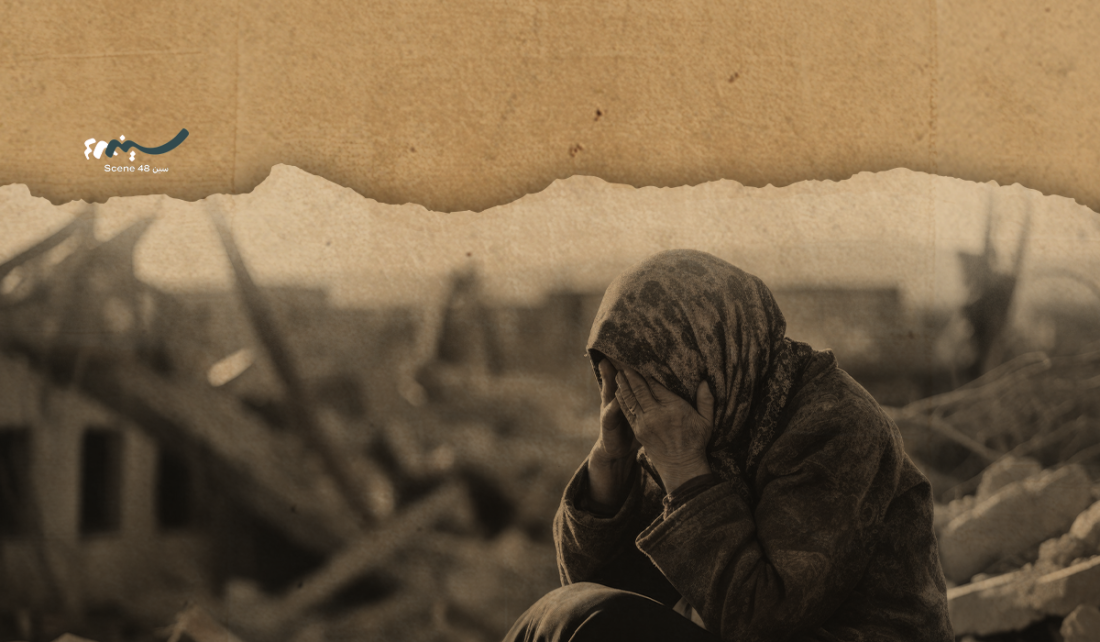
It seems that Netanyahu’s government’s plan regarding the future of the Gaza Strip and West Bank has gained new momentum after the meeting of the Israeli Security and Political Cabinet, held on Monday 5 May 2025. Perhaps the statement the by the Finance Minister of Israel, Bezalel Smotrich, following the meeting may be the most candid and clear of what has been said on the issue. The ministers unanimous vote, for the expansion of the military operation, was accompanied by the decision not to withdraw from the Gaza Strip even after the release of the hostages, which was not publicly stated by Benjamin Netanyahu or the official government statement. Smotrich deliberately emphasized in subsequent statements that “Gaza will be completely destroyed after the end of the ongoing war and that after six months there will be no Hamas in the Strip because the people of Gaza will start leaving in large numbers for a third country.”[1] It is worth noting that, since the beginning of the war on Gaza, that was the first time the Israeli Government uses the term “occupy the Gaza Strip” as a goal behind its decision expand its military operation in Gaza.
The occupied West Bank has been the second front where the Israeli military forces and settler militias escalated their military activities and attacks against Palestinian citizens. It is no secret that the aim of these assaults is, in practice, to implement the “Decisive Plan,”[2] which was drawn up by Bzazel Smotrich himself before joining Netanyahu’s government, a plan he began to execute after assuming his dual roles as Finance Minister and Minister in the Israeli Defense Ministry in charge of settlement affairs in the West Bank. As we have previously indicated, the “Decisive Plan” aims to eradicate the Palestinian national project by combating and destroying all Palestinian national symbols, political and civil-social frameworks, expanding Zionist settlement across the occupied territory, urging Palestinians to emigrate, subjecting them to Israeli rule, or fighting those who ever objects to these two options and declare, in the term of the current government, the annexation of the West Bank to Israeli Sovereignty.
To complete the picture in all its dimensions, we cannot forget what the Israeli Government has planned for its Palestinian citizens, and its publicized policy against their attachment to their Palestinian identity and their hopes for full civic equality in the Jewish state.
Dealing with and facing these issues were carried out both separately and integrally, with emphasis and assurance that every segment of the Palestinian people’s resistance was subjected to its own arena, specific circumstances, and the margins of maneuver available at each point in time. Thus, the Palestinians of the occupied territory continued in their resistance until their paths and loyalties splintered after 2006. Gaza came to have its own “margins, sea, tunnels, and dreams,” while the West Bank remained in limbo, breathing under the wings of a national authority and Israeli occupation, between which hopes are born and fade, and the impossible grows. Similarly, we, the Palestinian citizens inside Israel, face oppression policies and fight the battles of survival steadfastly on our homeland soils, under the roof of a flawed and convoluted citizenship.
This situation, with its ebb and flow, continued until 7 October 2023, when all the cards were reshuffled, history took us back to square one, all assumptions and concepts were upended, and we found ourselves needing to recalculate—each on their own front—especially after Jews in Israel and worldwide began to reassess and rearrange their positions anew.
The October quake led to broad and comprehensive Jewish consensus on the need to respond with the utmost military force; to restore Israeli deterrence, and regain confidence in the Israeli army’s immunity, and its ability to defeat anyone who challenges and harasses Israel and its security. Large groups started changing their political stance towards the possibility and means of ending the conflict with the Palestinians. One of the first premises shattered by the October quake was the two-state solution, as broad sectors among Jews withdrew their support of the Palestinian people’s right to establishing their own state, fearing that it would pose an existential threat to the fate of the Israeli State.
Some will say that the principle of the two-state solution collapsed immediately after the signing of the Oslo Accords, which contained within them the seeds of its demise, as indeed happened on the ground. While there is some truth to this claim, it is also partly inaccurate; before October, only the Israeli occupation was accused of undermining this principle, but since then, Palestinians have also been accused of this, leading several groups—some Zionist Jewish, some international—to withdraw their support for it.
Some may say that the Palestinian right to liberation from occupation is not contingent on Israeli approval or the Zionist movement’s position on it. This is absolutely true, yet insufficient in the face of the horrific scenes of killing and destruction in Gaza, nor in light of what could happen if Israel proceeds with its new military operation. This is also not enough to stop the killing, destruction, humiliation, and diabolical planning in the West Bank, which, if carried out, would subject it to the same fate as Gaza. Moreover, this slogan is no longer enough for us, us the Palestinians “inside” the wall, after October 7thput us in the rank of “enemies,” deserving to be treated by Israel with the same “intensive care” par with our Palestinian brethren.
Gaza has paid, and been paying the highest of prices, while the West Bank awaits its own zero hour—either total collapse or the miracle of salvation. As for us inside Israel, we stand at a dangerous crossroads, suffering from what has been described as an “intractable pathological mental state.” This is confirmed by our reality and what Israeli policy planners write, after their leaders, elites, and experts internalized the lessons of October 7th, upon which they built their expectations for the future:
“The State of Israel after October 7th is no longer the same country that it was before, and it cannot return to what it once was. October 7th shook the foundations of numerous fundamental assumptions and historical paradigms that had been pillars of Israeli national security doctrine. Many of these assumptions are no longer relevant to the new reality in which Israel now finds itself.”[3]
This is an excerpt from the introduction to a comprehensive report prepared by a group of academics and experts in military and security affairs working at the Misgav Institute for National Security and Zionist Strategy, which they submitted in the first week of May to the Speaker of the Knesset to present to the relevant authorities, for review and implementation of its recommendations.
I will not go through the chapters of this important and comprehensive report, but as I read the conclusion, I thought of the people of Gaza who will not read it, nor will those who speak on their behalf and negotiate with Israel over their fate. I read it and wished that people of the occupied West Bank read it too, as well as all those staking to face the “Decisive Plan” with prayers and wishes. Confrontation is an option, but for it to be successful they must know what the enemy is planning and what “game” it excels at, and gird up their loins accordingly.
I read and said: what is Gaza’s is for Gaza and has a God to protect it; what is the West Bank’s is for the West Bank and has a God to protect it; and what is ours is for us—in the end, the harvest of all the fields belongs to the people of the land and those who guard and protect it. I read the scene, and before me were the words of a colleague as anxious as us, who wrote on his page, trying to unravel the braids of our complex reality: “Perhaps the most accurate term to describe Israel’s policies toward Arab citizens inside the Green Line, especially in the context of the war on Gaza, is ‘politicide’, i.e., political killing. This term refers to the effort to dismantle or erase a political group from existence by destroying its institutions and public spheres, stripping it of its ability to influence or represent, erasing its identity, stifling its expression, pursuing its leaders, imprisoning them, and threatening their families.” This is our reality, and the question is: how do we confront it? Confrontation, as he wrote, “requires collective, cohesive political action aimed first at emerging from the ‘mental state’ that has taken root among us, and then taking steps to thwart this policy.”
These are precise and correct words, but the question remains: how will we do that? And the dilemma remains: who will do it?
To be continued…
Translated from the Arabic by Dunia Kassis.
[1] Source: https://www.theguardian.com/world/2025/may/06/hamas-israel-hunger-war-in-gaza
[2] Source: Israel's Decisive Plan - השילוח
[3] Source: https://www.misgavins.org/wp-content/uploads/2025/04/Israel-2.0-with-table-of-content-1.pdf

Jawad Boulus
A prominent Palestinian lawyer, writer, and human rights advocate. He is widely recognized for his legal defense of Palestinian prisoners in Israeli courts and his insightful commentary on Palestinian political and social issues.
